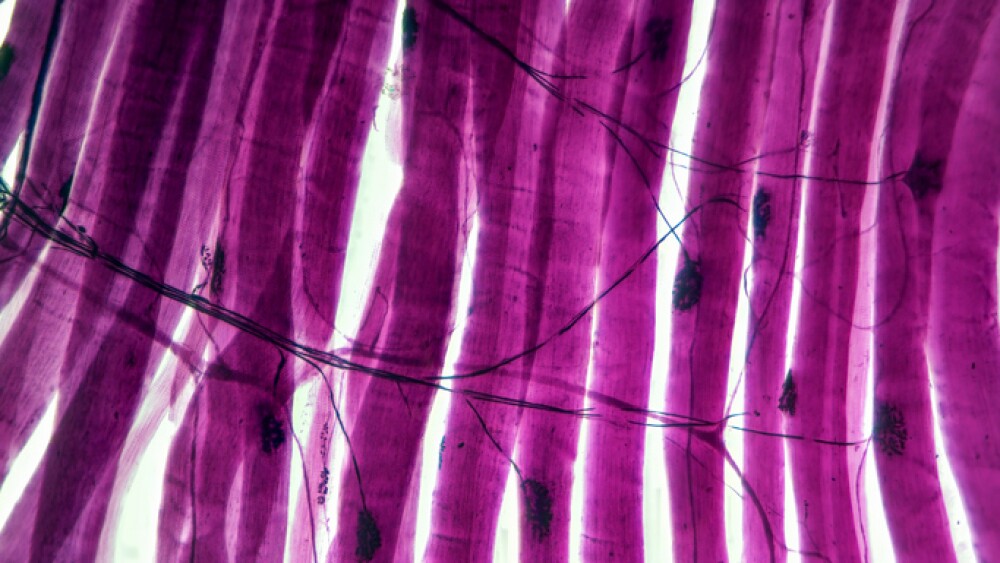The publication named “Spectrum of Response to Platinum and PARP Inhibitors in Germline BRCA-Associated Pancreatic Cancer in the Clinical and Preclinical Setting” was led by Dr. Talia Golan, Head of the Pancreatic Cancer Center at Sheba medical center, which is ranked one of the top 10 hospitals in the world by Newsweek, and by Chani Stossel, Ph.D., at the Oncology Institute.
A recent publication in “Cancer Discovery” reviewed Germline BRCA-associated pancreatic ductal adenocarcinoma (glBRCA PDAC) spectrum of responses to platinum and PARPi therapy, exploring the genomic and clinical features that may lead to different responses, and investigates the mechanisms of resistance.
REHOVOT, ISRAEL / ACCESSWIRE / October 3, 2023 / The publication named “Spectrum of Response to Platinum and PARP Inhibitors in Germline BRCA-Associated Pancreatic Cancer in the Clinical and Preclinical Setting” was led by Dr. Talia Golan, Head of the Pancreatic Cancer Center at Sheba medical center, which is ranked one of the top 10 hospitals in the world by Newsweek, and by Chani Stossel, Ph.D., at the Oncology Institute.
The research presents clinical outcomes of 125 patients with glBRCA PDAC who were stratified based on the spectrum of response to platinum/PARP inhibition: (i) refractory [overall survival (OS) <6 months], (ii) durable response followed by acquired resistance (OS <36 months), and (iii) long-term responders (OS >36 months). Patient-derived xenografts (PDX) were generated from 25 patients with glBRCA PDAC at different clinical time points. Response to platinum/PARP inhibition in vivo and ex vivo culture (EVOC) was correlated with patients’ clinical response.
The cResponse assay, developed in collaboration between Curesponse and the Weizmann Institute of Science was used in this research. The assay is now being used in Curesponse laboratories in the UK and in Israel.
The cResponse scores (cScore) were compared with the in vivo response for each model and treatment. A significant correlation between EVOC sensitivity to cisplatin and olaparib and in vivo tumor growth was noted (R2 = 0.59, n = 16, P < 0.001). Concordance was observed between EVOC and PDX response in 13/16 models, with a sensitivity of 100% and specificity of 89%. Overall, these results demonstrated a significant correlation between the clinical response to platinum agents and PARPi and the EVOC responses.
The cResponse assays offer several advantages, with the main ones being the short turnaround time and the potential of performing several treatment combinations in parallel.
The authors summarize the significance of the research being that glBRCA PDAC has a favourable response to platinum/PARP inhibition. However, most patients develop resistance. Such clinical distinction of patients may facilitate more informative treatment decisions. Additional treatment options for this unique subpopulation are needed. They generated model systems in PDXs and an ex vivo system (EVOC) that faithfully recapitulate these specific clinical scenarios as a platform to investigate the mechanisms of resistance for further drug development.
“We were very happy to collaborate with Sheba’s Pancreatic Cancer Center in this important study. The study demonstrated a strong correlation between the patients’ clinical response and the cResponse algorithm score, which signifies the tumor’s responsiveness to the tested therapies. The study’s findings reinforced our prior clinical validations and showcased the capability of the cResponse algorithm to aid oncologists in selecting the most suitable and effective treatment options for individual patients and their particular cancer,” said Dr. Vered Bar, the VP of Research & Development at Curesponse.
The cResponse platform combines rapid next-generation sequencing (NGS) with a proprietary functional assay that assesses the response of a cancerous tissue to various drugs and drug combinations while preserving the tumor microenvironment (TME). The combined technology is the first personalized cancer platform that offers patients, oncologists, and pharma partners an empirical test that reflects the response of the patient’s tumor to different drugs within two weeks from biopsy. The technology works across numerous therapeutic modalities, including chemotherapy, targeted therapy, and immunotherapy.
The cResponse platform is CE marked and performed in an ISO 15189-accredited laboratory setting. The test is reimbursed by private payers in Israel for personalized cancer treatment decision guidance. cResponse will be offered to cancer patients in the UK, EU and the USA in 2024.
For further information please contact info@curesponse.tech
Contact Information
Maoz Perlman
Director of Sales & Marketing, Israel
info@curesponse.tech
Contact Information
Guy Neev
Chief Executive Officer
info@curesponse.tech
SOURCE: Curesponse

View source version on accesswire.com:
https://www.accesswire.com/789608/a-new-publication-highlights-the-use-of-cresponse-in-the-assessment-of-response-to-platinum-and-parp-inhibitors-in-germline-brca-associated-pancreatic-cancer





